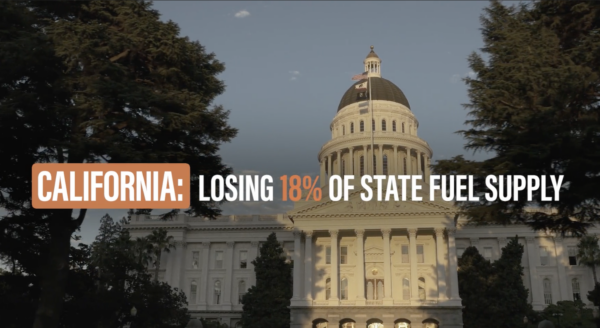New CEI Ad: Policies Drive Refinery Shutdowns – and Higher Gas Prices
A new TV ad from Californians for Energy Independence highlights an alarming trend: “State policies are the main driver for two major refineries shutting down, eliminating about 18% of our
Read More >